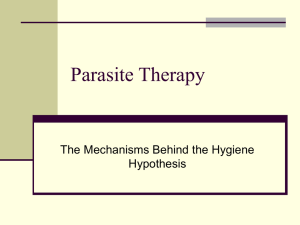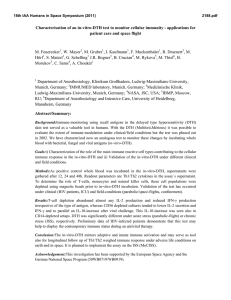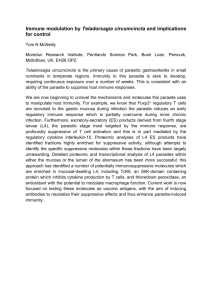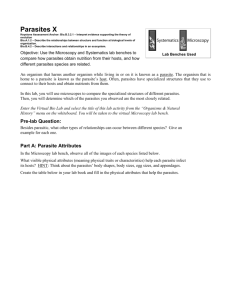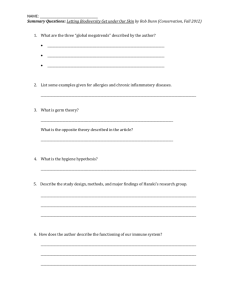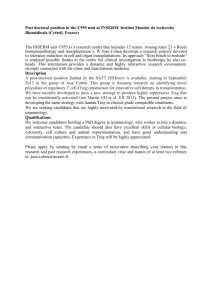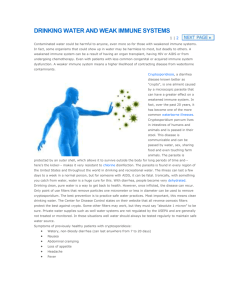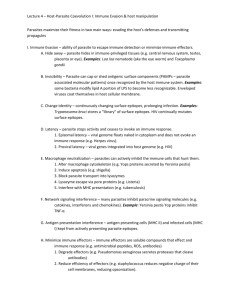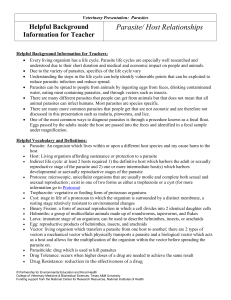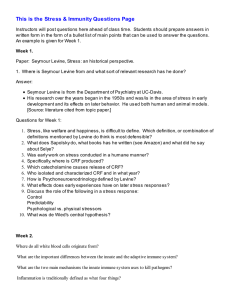How Can Parasites Be Beneficial for Your Health
advertisement
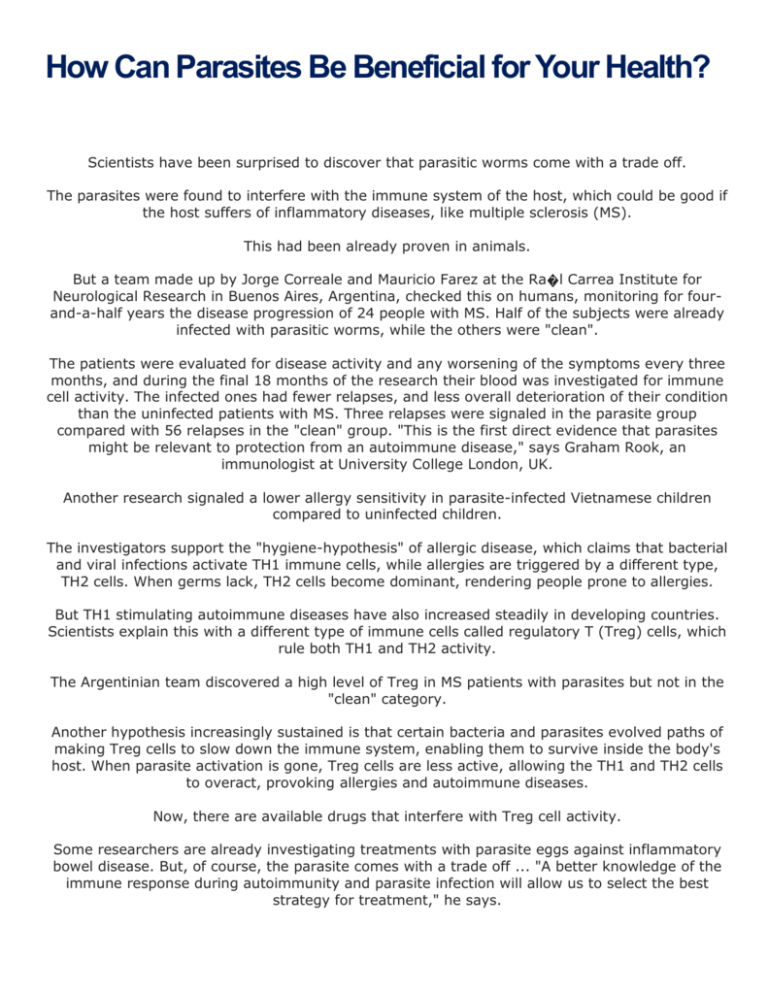
How Can Parasites Be Beneficial for Your Health? Scientists have been surprised to discover that parasitic worms come with a trade off. The parasites were found to interfere with the immune system of the host, which could be good if the host suffers of inflammatory diseases, like multiple sclerosis (MS). This had been already proven in animals. But a team made up by Jorge Correale and Mauricio Farez at the Ra�l Carrea Institute for Neurological Research in Buenos Aires, Argentina, checked this on humans, monitoring for fourand-a-half years the disease progression of 24 people with MS. Half of the subjects were already infected with parasitic worms, while the others were "clean". The patients were evaluated for disease activity and any worsening of the symptoms every three months, and during the final 18 months of the research their blood was investigated for immune cell activity. The infected ones had fewer relapses, and less overall deterioration of their condition than the uninfected patients with MS. Three relapses were signaled in the parasite group compared with 56 relapses in the "clean" group. "This is the first direct evidence that parasites might be relevant to protection from an autoimmune disease," says Graham Rook, an immunologist at University College London, UK. Another research signaled a lower allergy sensitivity in parasite-infected Vietnamese children compared to uninfected children. The investigators support the "hygiene-hypothesis" of allergic disease, which claims that bacterial and viral infections activate TH1 immune cells, while allergies are triggered by a different type, TH2 cells. When germs lack, TH2 cells become dominant, rendering people prone to allergies. But TH1 stimulating autoimmune diseases have also increased steadily in developing countries. Scientists explain this with a different type of immune cells called regulatory T (Treg) cells, which rule both TH1 and TH2 activity. The Argentinian team discovered a high level of Treg in MS patients with parasites but not in the "clean" category. Another hypothesis increasingly sustained is that certain bacteria and parasites evolved paths of making Treg cells to slow down the immune system, enabling them to survive inside the body's host. When parasite activation is gone, Treg cells are less active, allowing the TH1 and TH2 cells to overact, provoking allergies and autoimmune diseases. Now, there are available drugs that interfere with Treg cell activity. Some researchers are already investigating treatments with parasite eggs against inflammatory bowel disease. But, of course, the parasite comes with a trade off ... "A better knowledge of the immune response during autoimmunity and parasite infection will allow us to select the best strategy for treatment," he says.
